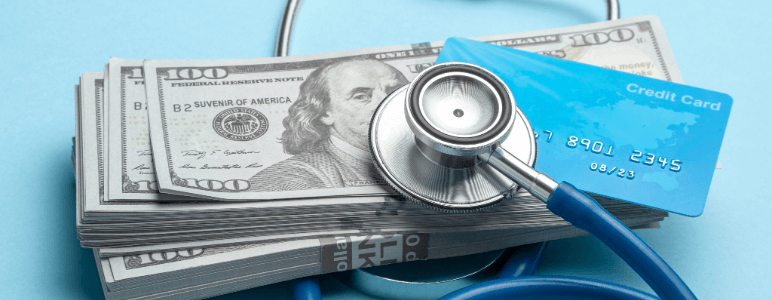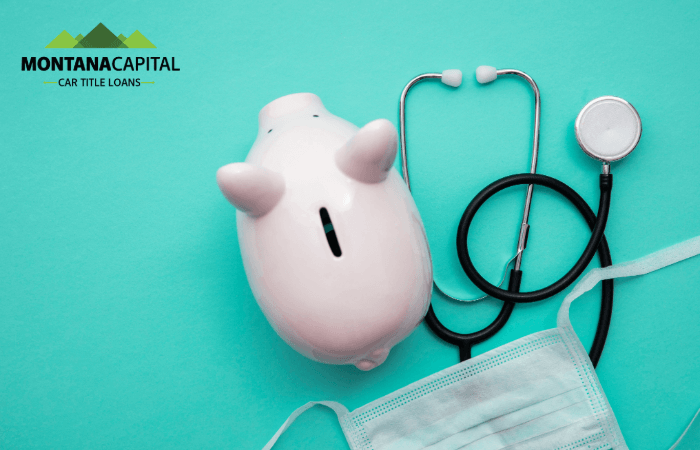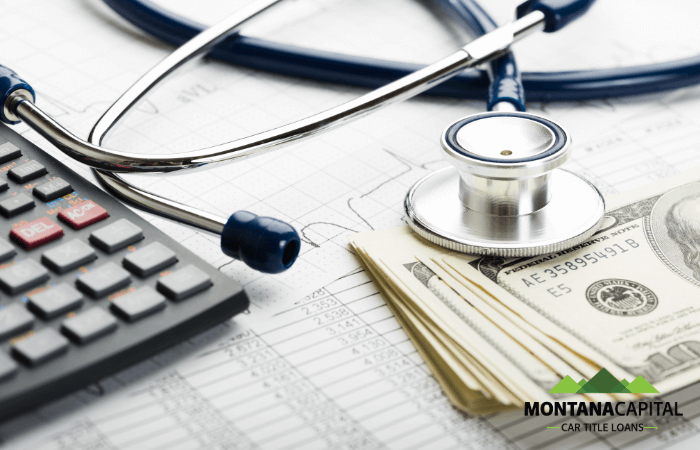Worried that bad credit might stop you from getting a medical loan? Unexpected medical expenses can be stressful, but there are options to help. Medical loans are designed to provide financial support when you need it, so you can access necessary healthcare even if you have a bad credit score.
Key Takeaways
- Medical loans for bad credit provide necessary financial support for health-related expenses, particularly when insurance coverage falls short.
- Borrowers can typically access loan amounts ranging from $1,000 to $50,000, depending on their needs and lender terms.
- Applying for a medical loan online is straightforward, with most lenders offering a simple application process that can be completed in minutes.
- Individuals with bad credit may still qualify for medical loans, though rates may be higher.
- If approved for a medical loan, funds can often be accessed quickly, sometimes within 24 hours, providing timely financial help.
What is a Medical Loan?
A medical loan is an unsecured personal loan made for medical expenses. It’s usually unsecured, so you don’t need collateral, and you repay it in fixed monthly amounts over time. Your credit history and ability to repay the loan play a role in determining the terms of the loan, such as interest rates and repayment conditions.
You can use it for things like surgeries, treatments, or other procedures that your insurance company doesn’t fully cover. These loans help when insurance isn’t enough, making sure you can still afford the care you need in a medical emergency.
What can I use a Medical Loan for?
Medical loans can be utilized for a wide range of medical expenses, including:
- Major surgeries
- Elective procedures
- Medical debt consolidation
- Hospitalization costs
- Emergency medical visits
- Dental procedures
- Preventive care
- Prescriptions
- Fertility treatments
Essentially, any medical-related expense can be covered using a medical loan.
How Medical Loans for Bad Credit Work
Even if you have bad credit, you can still get a loan, but the terms, like interest rates and fees, will likely be worse compared to someone with good credit. Medical loans for bad credit are similar to regular unsecured personal loans but are tailored for people with low credit scores. These loans can be crucial in medical emergencies, providing quick financial assistance when sudden medical costs arise.
Lenders often charge higher interest rates or offer smaller loan amounts to reduce their risk. Some lenders specialize in helping individuals with bad credit. They may consider factors beyond your credit score, such as your employment history and income, to determine your eligibility.
How Much Can I Borrow for a Medical Loan with Bad Credit?
Medical loans typically range from $1,000 to $50,000, though some lenders offer up to $100,000 for major procedures. Loan terms affect both monthly payments and total interest.
- Shorter terms – Higher monthly payments but lower overall interest.
- Longer terms – Lower monthly payments but more interest over time.
Your loan amount and terms depend on the lender, your income, and your financial situation.
Lender Tip: We recommend borrowing only what you need to cover medical expenses. Taking out more than necessary can lead to higher interest costs and longer repayment terms. A smaller loan means lower monthly payments and less financial strain in the long run.
Applying for a Medical Loan with Bad Credit
Applying for a medical loan is quick and easy. Most lenders offer online applications with same-day decisions. If approved, funds are typically deposited by the next business day, ensuring fast access to cash—especially to cover medical expenses.
Steps to Apply:
- Get Started Online: Simple online form takes a few minutes to complete.
- Get a Quick Decision: Most lenders will give a decision within a few minutes if possible.
- Get Funds: Once approved you may be able to get the funds within 24hours or less.
Comparing Medical Loans for Poor Credit
When considering medical loans for poor credit, it’s important to choose the right option to fit your financial situation. You want to make the best choice to cover medical bills.
Since bad credit can limit your choices, understanding key factors like interest rates, loan terms, and lender reliability will help you make an informed decision.
- Interest Rates: Compare online lenders to find the best rates, as they greatly affect the total loan cost.
- Loan Amounts and Terms: Short terms have higher payments but less interest; long terms have lower payments but more interest.
- Funding Times: Check how quickly funds are available—some lenders offer same-day funding, while others take longer.
- Lender Reputation: Research lenders for reliability and extra features like hardship plans or flexible payment options.
Managing Medical Debt
Managing medical debt can be a challenging and overwhelming task, especially when dealing with unexpected medical expenses. However, there are several strategies that can help individuals manage their medical debt effectively:
- Create a Budget: List your income, expenses, and medical debt to see how much you can pay each month.
- Prioritize Your Debts: Focus on medical debts based on the interest rate and the amount owed. Focus on paying off the debts with the highest interest rates.
- Negotiate with Your Healthcare Provider: Ask your healthcare provider about discounts or payment plans that fits your budget.
- Consider a Medical Loan: Medical loans can help you pay off debt with better terms than credit cards or other types of loans.
- Get Professional Help: A credit counselor or financial advisor can help you create a plan to track with your medical financing goals.
By implementing these strategies, you can take control of your medical debt and work towards financial stability.
Benefits and Drawbacks of Medical Financing
| Benefits | Drawbacks |
| Medical Financing: may provide same day financial support, crucial in emergencies. | Interest Cost: High-interest rates can make borrowing costly. |
| Structured Repayment: Fixed payments make it easier to budget. | Debt Accumulation: Adds to your debt which can be challenging to manage. |
| Flexible Use: Funds can be used for various medical expenses. | Potential Fees: Some loans come with origination fees or other charges. |
Alternatives to Medical Loans for Bad Credit
If a medical loan isn’t the right option, several alternatives exist:
- Healthcare Provider Payment Plans – Many providers let you spread payments over time, often interest-free, reducing the burden of upfront costs.
- Family Loans – Borrowing from family can be an affordable option if both parties agree on clear repayment terms.
- Medical Credit Cards – Some cards offer interest-free periods for medical expenses, but unpaid balances may lead to high deferred interest.
- Credit Union Loans – These loans often come with lower interest rates and flexible terms, making them a better option for those with bad credit.
- Nonprofit Assistance – Some charities and organizations provide financial aid for medical expenses, especially for those with limited income or chronic conditions.
Exploring these options can help you manage medical costs without taking on unnecessary debt.
Summary
We understand that medical expenses can come unexpectedly, and covering them isn’t always easy. A medical loan can help, even with bad credit. However, it’s important to explore other options like payment plans, nonprofit assistance, or credit union loans. Only borrow what you can comfortably repay to avoid extra financial stress.
FAQ
Can I Get a Medical Loan with Bad Credit?
Yes, you can obtain a medical loan with bad credit, but expect higher interest rates and less favorable terms. Consider lenders that specialize in catering to borrowers with bad credit histories.
What Credit Score is Needed for a Medical Loan?
The minimum credit score for a medical loan varies by lender. Some lenders accept scores as low as 580, while others may require a score of 640 or higher for better loan terms.
Do Medical Loans Require Collateral?
No, most medical loans are unsecured, meaning they don’t require collateral. However, secured loans, which use assets like a car or home as security, may offer lower interest rates.
Are There No-Interest Medical Financing Options?
Yes, some healthcare providers and medical credit cards offer interest-free financing for a limited period. Be sure to pay off the balance before the promotional period ends to avoid high-interest charges.
How Does Medical Debt Affect my Credit Report?
Medical debt will impact your credit report negatively if it goes to collections, which can significantly lower your credit score if you default on payments. Therefore, staying current on your medical bills and avoiding missed payments is essential to protect your credit.




